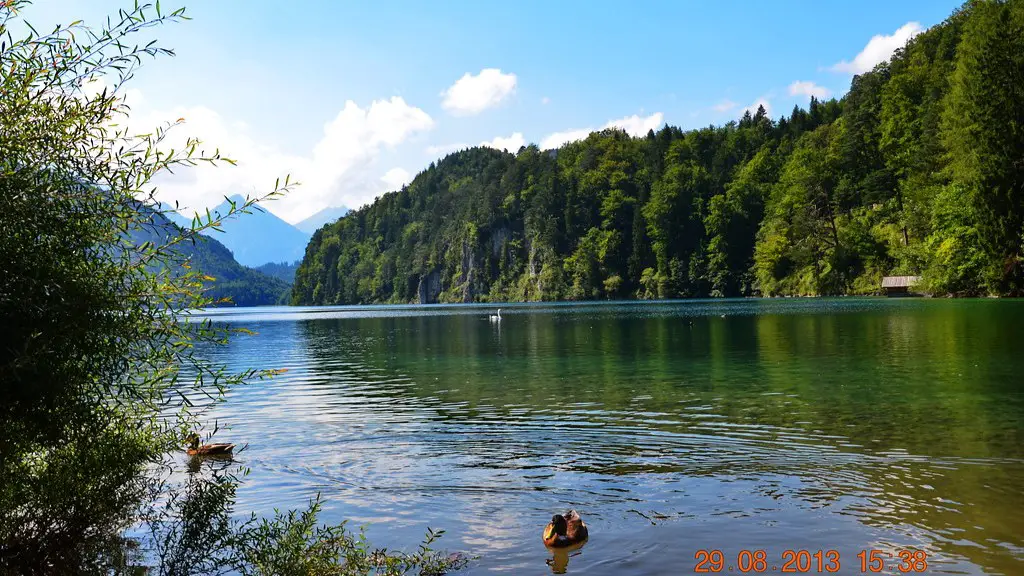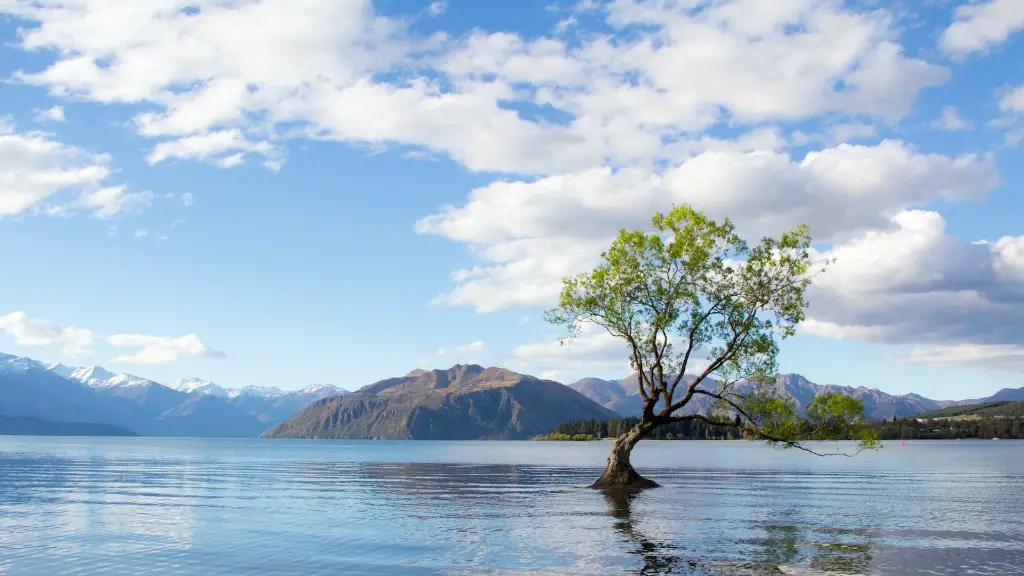Overview
Have you ever wondered what Lake Michigan smells like? This incredible body of water is known for its vastness, beauty, and mysteries. Although the majority of people think that Lake Michigan is only a recreational destination and a source of drinking water, the lake also has a unique smell that many are yet to experience. Lake Michigan is home to numerous fish species such as lake trout and chinook salmon, and its surrounding ecosystems are filled with life. In this article, we will explore the unique scent that this lake exudes, as well as other environmental factors that may contribute to that smell.
Olfactory Organs and Scent
Humans can detect odors and smells through their olfactory system. Olfactory organs are located inside the nose where they can identify and process different smells. The olfactory system is a complex process that involves the olfactory receptors in the nose detecting airborne molecules and then signalling the brain. Depending on how many molecules are detected and how strong they are, the brain can identify and distinguish between different smells. So, while smelling something like a rose may recall pleasant memories, something like a skunk may bring about feelings of disgust. Therefore, this interaction is closely linked to human emotions.
Factors that Affect the Smell of Lake Michigan
There are a number of factors that can affect the smell of Lake Michigan. Depending on the time of year and location, the smell and atmosphere of the lake will vary. For example, during the warmer months, the lake is filled with algae blooms, which can cause it to have a musty smell. During the colder months, the smell is often more subdued and earthy. This is due to the fact that the water temperature is much lower, meaning that decomposition of organic matter happens much more slowly and releases fewer odours. Additionally, the presence of fish and other animals can contribute to a fishy smell. Simply put, it all depends on the time of year and location.
The smell of Lake Michigan is also affected by pollution from nearby industries and farms. For example, certain chemicals from factories and manure from animal farms can contribute to the smell. Additionally, some of the creeks and rivers in the area can be contaminated with pollutants that eventually make their way into the lake. This can cause the lake to smell like waste, and it can be quite unpleasant.
The Smell of Lake Michigan
So what does Lake Michigan actually smell like? It depends on the season and the location, but the general consensus is that the smell is earthy and musty. In the warmer months, the lake often has a musty, humid smell combined with the smell of algae blooms. In the colder months, the smell is usually more pleasant and earthy. Additionally, the smell is often combined with the smell of fish and other animals that call the lake home.
Conclusion
Although it may be hard to describe the smell of Lake Michigan in words, it definitely has a unique scent. The smell of the lake is dependent on the season and location, with warmer months often smelling mustier than colder months. Exposure to pollutants from nearby industries and farms can also contribute to the smell. Nonetheless, the lake is a vibrant and beautiful destination that is home to numerous species of fish and other animals.
Mystery of the Deep
Lake Michigan is one of the most mysterious of the five Great Lakes. Home to many shipwrecks and rumored to contain many unimaginable treasures, Lake Michigan also holds its own secrets underwater. From unusual sea creatures to legends of mystical beings, this lake still holds its fair share of mysteries.
Each diverse underwater ecosystem in Lake Michigan adds to the unknown that this body of water harbors. From the world’s largest freshwater lake sturgeon to schooling salmon, to freshwater mussels and sponges, and a variety of plant life – this lake has something fascinating to offer with each dive.
Importance of Lake Michigan
Lake Michigan is an important body of water for many reasons. Not only does it provide recreation opportunities to local residents, but it also serves as a source for drinking water for many people. The lake is an ecological hotspot, providing habitat for numerous species of plants and animals. Furthermore, the lake ecosystem helps to regulate the climate of the surrounding area.
Apart from providing drinking water and recreational opportunities, Lake Michigan also serves as an important commercial shipping route. Millions of tonnes of goods are transported across the lake each year, providing economic and job opportunities for many people.
Preservation of Lake Michigan
It is important for the health and preservation of Lake Michigan that human activities in and around the lake are regulated. This includes limiting the amount of pollutants and waste that is dumped into the lake, along with regulating the number of boats that are on the lake at a given time. Additionally, it is also important to take care of the surrounding ecosystems, such as wetlands and forests, to ensure that the health of the lake is kept in check.
Locals can also make a difference by educating their friends and family on the importance of preserving the lake. This can include refraining from utilizing the lake for recreation purposes in order to prevent water pollution, as well as participating in clean up efforts.
Lake Michigan Resources
There are a number of organizations, websites, and resources dedicated to preserving and maintaining Lake Michigan. The National Oceanic and Atmospheric Administration (NOAA) is one organization that is committed to the preservation of the lake. Additionally, the Great Lakes Commission and the Great Lakes Restoration Initiative are two organizations that work to protect and restore the lakes in the Great Lakes region.
Finally, the Alliance for the Great Lakes is an organization that works to protect the resources of the Great Lakes. This organization works to engage citizens in the preservation of the water and other resources of the lake. Therefore, it is important to support this organization, as well as other local organizations, to help protect and preserve Lake Michigan.



